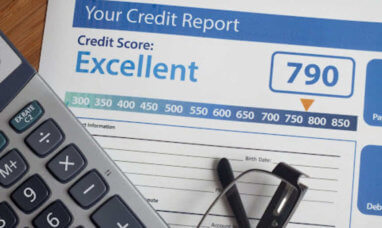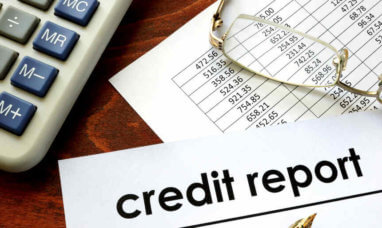Your FICO score and credit score may be the same; however, not all credit scores are FICO scores.
FICO scores have been around for more than 25 years and, today, are the standard for determining how risky a person is when it comes to extending credit. Today, over 90% of the top lenders utilize FICO scores for making more accurate, fairer, and faster lending decisions.
The other credit scores you have can be different than your FICO score, often by 100 points or more. While this is true, up to 90% of the top lenders today use your FICO score to make lending decisions.
The reason this is the case is that lenders know what to expect with the FICO score. It is a trusted, reliable, and fair measure of if you will repay the loan in a timely manner.
Keep reading to learn more about your FICO score, what it means, and more.
What Does FICO Score Mean?
The FICO score is one type of credit score.
The name was derived from the Fair Isaac Corp., which is the company that invented the FICO score in 1989. Sometimes, the terms “FICO score” and “credit score” are interchangeable; however, other brands offer credit scores, too.
What Is the FICO Score Range?
The range for FICO scores is 300 to 850. If you wonder, “is 839 a good FICO score,” the answer would be “yes.” A FICO score of 627 is considered good, as well.
FICO also provides more industry-specific scores for car loans and credit cards, which span from 250 to 900.
How Is a FICO Score Calculated?
If you have ever wondered why your FICO score dropped for no reason, you have to know how these scores are determined. You may also want to know what is a key feature in computing your FICO score?
The company uses a proprietary formula and the data in your credit report to determine your FICO score.
It’s important to note that the three credit bureaus may have slightly different information from one another. This is because not all creditors report to all three credit bureaus. Because of this, your score may vary based on the data provided by the credit bureau used in the formula.
What Is a Good FICO Score?
You have good credit is if you have a FICO score of 690 to 719. However, each credit card issuer and lender can determine what score is required to qualify for the line of credit they offer.
According to the FICO company, a good credit score is anything between 670 on the low end and 739 on the high end. While you may get an alright loan with a 580 FICO score, it may also be a good idea to increase your score before applying for the loan.
Why Is a FICO Score Important?
When you apply for a credit card or another loan, the lender or creditor will use your FICO score to decide if they will approve your application. It provides a picture of how you have handled the credit you were given in the past.
The creditor may also look into other information, like your current debt obligations and income, to determine if you can repay what you owe.
If you have a score that is between the good and excellent range, it will provide you with more options and give you access to better interest rates.
What Is a FICO Score Used For?
Along with being used by creditors, the credit score you have can also be used by landlords and utility companies to figure out what deposit you should pay or if you will be accepted as a new tenant.
What Affects Your FICO Score?
FICO has not revealed its specific scoring formula. However, it has provided helpful guidelines regarding the factors that are considered when determining your score.
If you pay your bills on time and keep your balances low, your score will be higher. Some of the specific considerations that FICO uses to determine your score include (percentages are approximations):
-
-
- Various types of credit (10% of the score): Making sure you have different types of credit is important and can help your score.
- Recent credit applications (10% of the score): When you apply for new credit, the creditor makes a hard inquiry, which can lower your score for up to six months.
- Age of credit (15% of the score): The amount of time you have had credit and the average age of your credit accounts matter.
- About of debt vs. your credit limits (30% of the score): How much of your available credit limits are you currently using. The less you use, the better your score will be.
- Payment history (35% of the score): If you pay late, this can reduce your score, along with bankruptcy or accounts in collection.
-
FICO Score vs. Credit Score
A FICO score is a type of credit score. Other companies provide credit scores, too, including VantageScore. Also, you can have different types of FICO scores, with the 2009 FICO 8 being just one common option. Other types of FICO scores include:
-
-
- FICO 9 – the newest offering
- FICO and FICO 10T – commonly used by mortgage lenders
- UltraFICO – for those who want to rebuild credit or who are new to credit
-
How Do I Get a FICO Score?
If you want to know what your FICO score is, there are a few options.
Some credit card companies provide this to members for free. You can also pay to get your FICO score. It’s a good idea to keep track of your FICO score and the factors affecting it a few times a year. This will let you know the health of your financial situation and if you can be approved for additional credit in the future.
Being informed and understanding what your FICO score is and why it matters is essential. Be sure to check your score regularly to keep up with any changes that have occurred.
Featured Image: Megapixl








